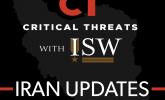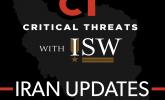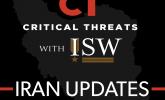Russian Offensive Campaign Assessment, February 28, 2023
February 28, 2023 - ISW Press
Russian authorities appear to be escalating their promotion of false flag information operations to distract from their lack of tangible battlefield gains and slow down the provision of Western tanks and other aid in advance of expected Ukrainian counter-offensives. The Russian Ministry of Defense (MoD) accused the “US and its accomplices” on February 28 of planning to carry out a provocation in Ukraine using toxic chemicals. The Russian MoD relatedly claimed on February 19 that Ukrainian officials are planning false-flag attacks at hazardous radiation facilities in Ukraine to accuse Russian forces of indiscriminately striking such sites. The apparent uptick in fallacious biochemical and nuclear false flag warnings accompanies a concerted Russian false flag information operation accusing Ukraine of preparing for an invasion of Russian-occupied Transnistria, Moldova. Russian President Vladimir Putin also notably re-introduced nuclear rhetoric into the Russian information space during his address to the Russian Federal Assembly on February 21 when he announced Russia’s intent to suspend participation in START. The recent resurgence of several standard Russian information operations in the form of false flag warnings and tired nuclear threats suggests that Russian officials are increasingly trying to mitigate the informational impacts of a continued lack of Russian battlefield successes as well as to slow down the provision of Western tanks and other equipment in advance of expected Ukrainian counter-offensives. ISW has previously reported on the correlation between Russian information operations and battlefield realities, particularly when Russian forces are failing to take significant ground in offensive operations in Ukraine. The Russian MoD and top Russian officials will likely escalate their engagement with such information operations as the ongoing Russian offensive in Luhansk Oblast nears culmination and the opportunities for Ukrainian counter-offensives grow.










